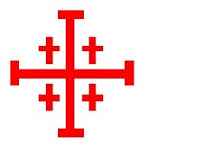 I remember a fleeting conversation years ago when I was a young and inexperienced priest in another diocese. I stepped into the elevator at our Diocesan House and discovered myself face to face with our Diocesan Bishop. Our theologies were drastically different and he was given to be abruptly outspoken. Said he, out of that ethereal chamber that he seemed to live in, a sort of ex-cathedra, "Some portions of the Psalms are sub-Christian! That's why we leave them out of the lectionary!" After a moment of stunned silence the door of the elevator opened and shut and I was left standing alone. One thing was certainly clear. He had let me know in his own inimitable way that he disagreed with my view of the authority of Scripture.
I remember a fleeting conversation years ago when I was a young and inexperienced priest in another diocese. I stepped into the elevator at our Diocesan House and discovered myself face to face with our Diocesan Bishop. Our theologies were drastically different and he was given to be abruptly outspoken. Said he, out of that ethereal chamber that he seemed to live in, a sort of ex-cathedra, "Some portions of the Psalms are sub-Christian! That's why we leave them out of the lectionary!" After a moment of stunned silence the door of the elevator opened and shut and I was left standing alone. One thing was certainly clear. He had let me know in his own inimitable way that he disagreed with my view of the authority of Scripture.I was shortly to learn the gracious side of my bishop. In accord with a long-standing tradition in my parish, three dissident members of the vestry turned up in his office in an attempt to remove me. The Diocesan Bishop and his Suffragan Bishop called me aside for a brief conference. Their godly admonition to me was "Stay in that parish until every last one of them is dead or has gone somewhere else!" The second thing that was also clear was that theological disagreement did not imply alienation or lack of support. Throughout the years that followed my relationship with both bishops deepened. We were after all members of the communio peccatorum, the fellowship of sinners even while we attempted to work out what it meant to be members of the communion sanctorum, the fellowship of saints. One moment stands out in my memory. My wife was in the hospital during the diocesan convention. The Suffragan Bishop left the floor of the convention to kneel on the hospital floor by my wife's bed and pray for her.Then theological differences were just theological differences. It is not that we did not feel the issues deeply, but rather that we shared a common sense of the breadth of Anglicanism. But that time has passed.
In That Hideous Strength C. S. Lewis makes the following observation: "If you dip into any college, or school, or parish, or family - anything you like - at a given point in its history, you will always find that there was a time before that point when there was more elbow room and contrasts weren't quite so sharp; and that there's going to be a time after that point when there is even less room for indecision and choices are even more momentous. Good is always getting better and bad is always getting worse; the possibilities of even apparent neutrality are always diminishing. The whole thing is sorting itself out all the time, coming to a point, getting sharper and harder."
There has been an unveiling of a new fundamentalism, but the word "fundamentalism" needs to be more accurately defined for the "post-modern era." Fundamentalism is not a theological position but a mindset, what Erik Erikson refers to as a "totalism." A fundamentalism, or totalism, is a mindset that can be most accurately described as a closed box. What fits comfortably within the box is acceptable, what does not fit within the structure is cut off and tossed away.
There are many kinds of fundamentalists. There are Republican Fundamentalists, Democratic Fundamentalists, Scientific Fundamentalists, Atheistic Fundamentalists, Biblical Fundamentalists, Prayer Book Fundamentalists, and clearly in the Episcopal Church we now have Liberal Theological Fundamentalists. You can always tell fundamentalists by their attitudes. If you don't play by their rules they want you to get out of their box!The change came during a General Convention several years ago when the Episcopal Church attempted to legislate that all dioceses must accept the ordination of Women. While I agree with the ordination of Women at the same time I recognized a drastic shift away from mutual tolerance and forbearance. No longer was disagreement to be tolerated. Now the will of the majority must be forced upon the minority. Unless there are some changes in the way our Liberal Fundamentalists approach things I anticipate that the same type of policy will eventually be placed in effect regarding a mandatory acceptance of the ordination of practicing homosexuals and lesbians and in regard to a mandated obligation to perform same-sex marriages. This will happen regardless of what more conservative members of the Church may feel about them. To expect any less would be naïve. Liberal Fundamentalist bishops are already preparing for that eventuality by forcing their will on the conservative parishes in their dioceses and wherever possible displacing their clergy from active ministry. This was most recently reflected by Gene Robinson in his 60 Minutes interview when he made it clear that if the conservatives disagree they may just have to leave his church. While he didn't actually say "his church" that was certainly implicit in his remarks. I would hasten to say that the Church doesn't belong to Robinson's particular brand of fundamentalism. The Church ultimately belongs to the Lord of the Church, Jesus Christ.


No comments:
Post a Comment